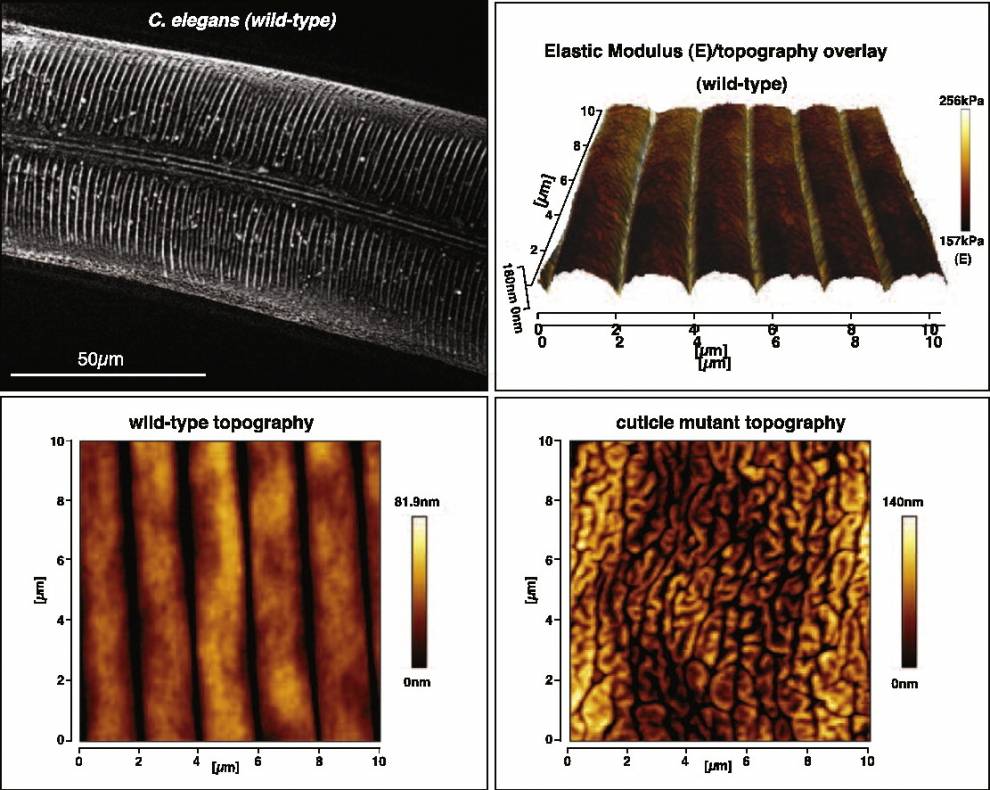Atomic force microscopy (AFM) is a powerful method for topographic imaging of surfaces with nanometric resolution.
In contrast to other high-resolution techniques, and importantly for in-vivo biological imaging, AFM does not require sample dehydration/labelling. We have applied AFM to study the model organism C. elegans, assessing how its cuticle is affected by mutations in cuticle collagen genes1 and measuring how the mechanical properties of the organism change with age2. We are currently using the technique to test the feasibility of detecting new mechanical signatures in tissue sections to improve diagnosis of cancer3.

1https://doi.org/10.1016/j.nano.2016.09.006
2https://doi.org/10.1038/s41467-020-14785-0
3https://doi.org/10.1007/978-3-030-32239-7_84
 Close
Close

